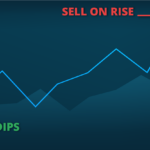What does equity mean in the stock market?
From the legal term meaning justice, according to natural law or one’s rights, English Equity law traditionally overrides common law and statute law. It designates what one is actually worth in the eyes of the law after all else – judicial and administrative restraints – has been subtracted.
In finance, it specifies what one is worth – all one’s assets minus all one’s debts, and in the stock marketA location or entity where people and entities can negotiate and trade assets of value., equity means, insofar as corporate matters are discussed, all the money that would be returned to all shareholders once a company’s assets are liquidated and debts paid off. This is more often specified as ‘shareholder equity’, and it is perhaps one of the most important components in a company’s financial report (to be found in the ‘balance sheet’).
Shareholder equity will include retained earnings – those not paid out as dividends, which includes earnings reinvested by the company, physical assets and so forth, but not projected income.
Equity Shares
Equity shares, more often referred to as ‘common shares’, ‘ordinary shares’ or ‘ordinary stock’, are shares issued to the public as an investable and tradeable securityA documented and tradeable asset -mainly stocks and bonds, but also documented derivatives.. It provides the shareholder (the share’s buyer) with partial ownership of a public company – one traded on an official stock exchange – that includes the right to vote on corporate matters, such as electing board members, discussing takeover bids, and so forth. It also entitles the shareholder to a portion of the company’s profits, paid regularly as dividends at the company’s discretion.

Here is the place to make two digressions:
- A company does not have to pay dividends; indeed, some of the more attractive shares on the market do not pay dividends at all, and the value in these shares is their increasing market value, compared to the benchmark stock index performance, and
- With the prerogative comes the responsibility: in case of liquidation, common shareholders are remunerated for their shares only after bond and debt holders, then preferred shareholders, who do not have the right to vote. Since it is assumed that a common shareholder took part in the decision-making that led to a company’s misfortunes, he/she should also be liable for those, to the same extent.
What are the benefits of Long term investing?
Past experience shows that stock markets reflect overall growth in the economy. The latter stems quite simply from the gradual progress of the human situation – scientifically, health-wise and, thanks to human aspiration, materialistically.
Equity investmentAn asset (usually money or work) provided to another in expectation of receiving a cash return or be... – after bonds and other forms of debt trading – is considered one of the safest and most profitable long-term investment available. The benefits of long-term investing over short-term speculation become quite clear when examining the different styles and components of each.
Although options and futures contracts predate modern-day shares, all three have their sources in the Classic world – options in ancient Greece, Futures in Samaria, then Holland and Japan, and shares in Ancient Rome before being adopted by the respective Dutch and British East India trading companies as a means of funding cargo conveyance.
For the Ancient Romans, ‘partes’ (stocks) were a means of funding public works; however, there is some debate as to whether these could be compared to shares, as they resembled taxes more than voluntary funding, and the ancient stock exchange near the Temple of Castor is nowadays considered a myth. The Dutch, in 1602, were, in fact the first to enable shares to be traded amongst investors at the Amsterdam Stock Exchange, this after the British invented the actual concept of being able to ‘buy into’ the projected profits of an upcoming commercial exploit to East India.

To returnThe benefit one receives on an investment. to the modern-day, the profitability of equity investment is calculated on a share’s increase in value and its Return on Equity. The former is a function of the share’s demand/supply; it is the share’s perceived value, as judged by market participants. The latter is a more precise measure and equals a company’s net income divided by shareholder equity. This is a measure of the company’s performance, how efficiently management puts the company’s assets to good use, i.e. making profits.
Because most companies are in the business of making money, it can be assumed that, in the long run, and given that unsuccessful companies go bankrupt and disappear, long-term equity investment is generally more profitable than short-term speculation, which is more exposed to short-term deviations from the norm. Thus, the chances are that some in-depth fundamental analysisThe study of an asset’s inherent value. Current affairs and economic data may influence the value ... will suffice to estimate if a company is a worthwhile investment. As for technical analysisA technique of forecasting the direction of prices by studying past market behaviour using primarily... – in the long term, a relatively slow-moving average should provide confirmation but – given the lack of input other than market sentiment – it should not be one’s primary source of examination.
This is all quite irrelevant for the short term: a company may make short-term miscalculations, but proper due diligence will indicate if it can surmount momentary difficulties. Technically, markets are fickle, and what may be a promising long term proposition is still subject to short-term market whims.
There are, in addition, tax advantages, such as capital gains tax, which is rated below one’s annual income tax bracket for investments held for over a year, whereas short-term investments are considered to be regular income. Less transactionAny exchange of assets. costs and commissions are another factor, as is compounding profits to increase income.
Which should I choose?

Most investment funds will not select specifically one style of trading over the other but combine the two – long-term for security, short-term for profits. Because the latter is less ‘safe’, the profits tend to be higher, in line with the increased short-term volatilityThe measure of fluctuation in an asset’s value from the mean. Volatility can be historical (over a... one acquaints with speculative assets.
On the other hand, for the sheer excitement, nothing beats short-term trading, which – when done cautiously – can sometimes also be quite lucrative. However, since it is also mostly – and especially for the inexperienced – a losing proposition, one should never devote more to speculation more than one is willing to lose.
As a result, many online brokers are beginning to offer – in addition to their derivativeA contract to trade an underlying asset (or a basket thereof) in the future. Examples of derivatives... offerings – ECN accounts that enable clients to invest directly in physical assets, which for the retail traderA merchant who purchases and sells assets or services for profit. In financial markets, the trader b..., usually means shares.











